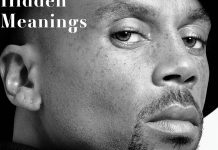A native of Baltimore who grew up near Chicago, Emily Giffin was a very unhappy litigation attorney in New York before moving to London in 2001 to pursue full-time writing. Two years later, she moved to Atlanta with her husband, when she was pregnant with twin princes, Edward and George. In 2007, the family grew to include a baby girl, Harriet.
St. Martin’s Press is printing 1.3 million copies of her fifth novel—a huge number for fiction by anyone not named John Grisham. And Giffin’s first novel, Something Borrowed, is being developed into a major motion picture by Hilary Swank’s production company.
From her home in Brookhaven, Giffin talks about the writing life and her new novel, Heart of the Matter.
How does a mother of three small children find time to write? Do you have a room of your own?
The same way any working mother finds time to do her job. I think there must be a perception that all writers do so on the side, as a hobby of sorts. But this is my career, my full-time job, and I must treat it that way in order to make my deadlines and handle the business, marketing, and publicity side of things. So generally, after I have breakfast with my children and see them off to school, I retreat to my attic office, where I stay for most of the day.
Reviews of your books usually include words like “relatable” and “believable.” What’s the secret to writing characters that readers find so appealing?
I just try to create realistic characters, which usually means flawed characters. I believe that most of us are good people, but we are all fallible and vulnerable and capable of making destructive choices despite our best intentions. I think the trick is to find and create empathy, in life and in my stories. Empathy is what connects us all.
What’s your greatest character flaw?
Perfectionism. I too often expect perfection from myself and others—although I somehow manage not to inflict such standards on my children. This global flaw drives most of my other flaws: impatience, inability to live in the moment, tendency to micromanage, indecision.
How much autobiography is there in your novels?
The overarching plots of my stories are not autobiographical, but I do draw on my own life experience—and the experiences of my friends and family—when it comes to smaller scenes and emotional responses. We are all the sum of our relationships and experiences, so it’s impossible not to write with those things in mind.
Do you usually start with a plot idea, a character or something else? Where did this new novel come from?
My books are character-driven. I first conjure a character and then get to know her, then put her in a relatable dilemma. The plot follows as I go along. Heart of the Matter is no exception, although the first seed was planted after a woman I met at a charity function spoke passionately of her son, his birth defect, and the doctor who saved them.
Both Tessa and Valerie are devoted mothers. How has being a mother changed you, for better or worse?
Becoming a mother means a complete and permanent loss of emotional freedom. You can never shut off the worry—or guilt that you could be doing more to shape these human beings. On the flip side, being a mother has taught me perspective. It is in my nature to sweat the small things, but I am more likely now to celebrate the small things, too.
Does your success surprise you at all?
Success is a funny thing. It is so relative and incremental that your benchmarks are always raised, your definition constantly evolving. I have the feeling, whether rational or not, that if I ever sat back and basked in the moment, everything would come to a sudden and swift end.
Your publisher is printing 1.3 million copies of this novel and sending you on a book tour. Does that put any added pressure on you when you sit down to write the next novel? Or is it all good?
The print run does not intimidate me. The only thing that concerns me is the reaction of my readers. I want my story to satisfy my readers; I want it to resonate with them in some way; I want them to come to the last page feeling somehow changed, if not downright uplifted. And of course, if all of this happens, I want more of it the next time. This is more pressure than any print run or dollar amount could ever be.
Something Borrowed is soon to be a movie. Are you actually working on the screenplay? What’s that process like compared to writing a novel?
I’ve been very involved with the movie—much more so than I thought I’d be at the outset—with everything from the script to casting. It’s been a roller coaster—mostly thrilling, sometimes frustrating. Whereas writing a book is mostly frustrating, sometimes thrilling! The other main difference is that writing is, for the most part, solitary—and working on a movie is utterly collaborative.
Have you started your next novel? What’s it about?
I have begun my sixth novel, but the ideas are still simmering, the characters still gelling.
Is Atlanta a good setting for a novel? Why or why not?
Absolutely. Atlanta is a vibrant, diverse city filled with characters in every sense of the word. But I must confess that I’m reluctant to set another book here after Love the One You’re With. Although most understood the book was fiction, some residents seemed to confuse my first-person narrative with my own experience and felt that I was criticizing Atlanta—a reaction that surprised me. For one, I felt that I was portraying Atlanta in a positive light, even giving shout-outs to my favorite local establishments. In addition, I attended two Southern schools (Wake Forest and the University of Virginia for law school) and all three of my children were born here. So clearly I love the South. And I think Atlanta is the perfect place to raise a family.
What have you read lately that you love?
I just finished Olive Kitteridge by Elizabeth Strout. In breathtaking, powerful prose, Strout writes a collection of linked tales of loneliness and despair, punctuated by moments of hope and beauty—which, I think, is called “life” for most. I love reading books that fill me with envy—that feeling of, “God, I wish I could do that.”
>> Back to May 2010 book reviews















